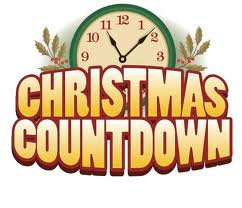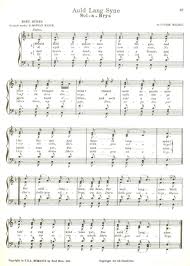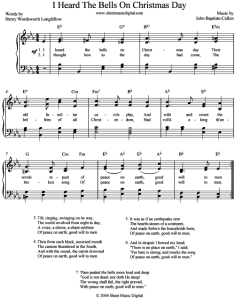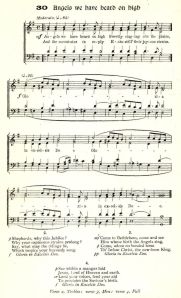Auld Lang Syne ~ Christmas Countdown Conclusion:
Friday, December 31, 2021 by Mary O'Connor | holiday

"Auld Lang Syne" is a Scots poem written by Robert Burns in 1788 and set to the tune of a traditional folk song. It is well known in many countries, especially in the English-speaking world; its traditional use being to celebrate the start of the New Year at the stroke of midnight. By extension, it is also sung at funerals, graduations and as a farewell or ending to other occasions. The international Boy Scout youth movement, in many countries, uses it as a close to jamborees and other functions.
The song's Scots title may be translated into English literally as "old long since", or more idiomatically, "long long ago", "days gone by" or "old times". Consequently "For auld lang syne", as it appears in the first line of the chorus, might be loosely translated as "for (the sake of) old times".
Auld Lang Syne is one of Scotland's gifts to the world, recalling the love and kindness of days gone by, but in the communion of taking our neighbours' hands, it also gives us a sense of belonging and fellowship to take into the future.
It is one of the many folk songs from the great Lowland Scots tradition collected and fashioned by the pen of one of the world's greatest songwriters. Burns devoted the last years of his life to the song tradition, and often a mere fragment from some old ballad was transformed by his alchemy into a memorable love song or Scots poem. With Auld Lang Syne, though, the brilliance was already there; this is the Bard's first mention of it in a letter to Mrs Dunlop in 1788:
"... Light be the turf on the breast of the heaven inspired Poet who composed this glorious fragment."
One of the most interesting facts is that the Auld Lang Syne tune which is sung from Times Square to Tokyo, and has conquered the world, is not the one Robert Burns put the original words to. The older tune though is still sung by traditional singers. It has a more douce, gentle, nostalgic feel to it than the popular tune a mood evoked by the subtle use of the traditional air sung by Mairi Campbell in the first Sex and the City movie. However, whichever tune it is sung to, and wherever in the world it is sung, Auld Lang Syne retains the great emotional resonance of the original traditional song of the Scottish people of those days in the distant past. Lets leave the last word to Burns himself:
"... is not the Scots phrase, 'Auld Lang Syne', exceedingly expressive - there is an old song and tune which has often thrilled thro' my soul".
Fancy singing along yourself? Here are the verses of the words to Auld Lang Syne:
Should auld acquaintance be forgot ,
And never brought to mind?
Should auld acquaintance be forgot ,
And auld lang syne.
Chorus:
For auld lang syne, my jo,
For auld lang syne,
We'll tak a cup o' kindness yet,
For auld lang syne,
And surely ye'll be your pint-stowp!
And surely I'll be mine!
And we'll tak a cup o' kindness yet,
For auld lang syne.
Chorus
We twa hae run about the braes
And pu'd the gowans fine;
But we've wander'd mony a weary foot
Sin auld lang syne.
Chorus
We twa hae paidl'd i ' the burn,
Frae mornin' sun till dine;
But seas between us braid hae roar'd
Sin auld lang syne.
Chorus
And there's a hand, my trusty fiere !
And gie's a hand o' thine!
And we'll tak a right guid willy waught,
For auld lang syne.
Chorus
Should old acquaintance be forgot ,
And never brought to mind?
Should old acquaintance be forgot ,
And long, long ago.
Chorus
And for long, long ago, my dear
For long, long ago,
We'll take a cup of kindness yet,
For long, long ago
And surely youll buy your pint-jug!
And surely I'll buy mine!
And we'll take a cup of kindness yet,
For long, long ago.
Chorus
We two have run about the hills
And pulled the daisies fine;
But we've wandered manys the weary foot
Since long, long ago.
Chorus
We two have paddled in the stream,
From morning sun till dine;
But seas between us broad have roared
Since long, long ago.
Chorus
And there's a hand, my trusty friend!
And give us a hand of yours!
And we'll take a deep draught of good-will
For long, long ago.
Chorus
Here is an old kinescope from over 50 years ago!! For 100 years, the slow drop of a lighted glass ball on New Year's Eve from atop One Times Square in New York City has become an American tradition. A huge crowd gathers every year to welcome in the New Year.
Beginning in 1956, Guy Lombardo & His Royal Canadians entertained the US on New Year's Eve with a combination of music and the live "ball drop" at Midnight. Guy continued this tradition until his death in 1977. His band still played on at CBS Television on New Years for an additional 2 years. (Dick Clark's Rockin New Years Eve began in 1972 on ABC and still broadcasts annually.) This broadcast began right after the 15-minute news and ran for an hour. Guy plays the music and newsman Robert Trout announces the beginning of the New Year.
If you look closely, you'll see acerbic television personality Henry Morgan in the crowd. TV was very primitive 50 years ago. Harsh lighting, a cheap office clock and a World War II searchlight scans the crowd below.
I hope you'll enjoy ringing in the New Year - 1958! Recorded: December 31, 1957
Auld Lang Syne played on bagpipes (as it should be)
This is from the 2015 Edinburgh Tattoo which we attended:
Christmas Music: I Heard The Bells on Christmas Day
Saturday, December 4, 2021 by Mary O'Connor | holiday
"I Heard the Bells on Christmas Day" is a Christmas carol based on the 1863 poem "Christmas Bells" by American poet Henry Wadsworth Longfellow. The song tells of the narrator's despair, upon hearing Christmas bells, that "hate is strong and mocks the song of peace on earth, goodwill to men". The carol concludes with the bells carrying renewed hope for peace among mankind.
This version is done by Casting Crowns. I chose it because the Pender choir sang this on Christmas Eve with past-Associate Pastor Dan Elmore singing the solo...and I fell in love with this version.
As seen on 2008 TBN Christmas special. "I Heard The Bells On Christmas Day" is available on Casting Crowns' Christmas album, Peace On Earth.
More traditionally, the Mormon Tabernacle Choir's version:
I heard the bells on Christmas Day
Their old, familiar carols play,
and wild and sweet
The words repeat
Of peace on earth, good-will to men!
And thought how, as the day had come,
The belfries of all Christendom
Had rolled along
The unbroken song
Of peace on earth, good-will to men!
Till ringing, singing on its way,
The world revolved from night to day,
A voice, a chime,
A chant sublime
Of peace on earth, good-will to men!
Then from each black, accursed mouth
The cannon thundered in the South,
And with the sound
The carols drowned
Of peace on earth, good-will to men!
It was as if an earthquake rent
The hearth-stones of a continent,
And made forlorn
The households born
Of peace on earth, good-will to men!
And in despair I bowed my head;
"There is no peace on earth," I said;
"For hate is strong,
And mocks the song
Of peace on earth, good-will to men!"
Then pealed the bells more loud and deep:
"God is not dead, nor doth He sleep;
The Wrong shall fail,
The Right prevail,
With peace on earth, good-will to men."
Christmas Music: Angels We Have Heard On High
Friday, December 3, 2021 by Mary O'Connor | holiday
Angels We Have Heard On High
- Angels we have heard on high
Sweetly singing o’er the plains
And the mountains in reply
Echoing their joyous strains - CHORUS:
Gloria, in excelsis Deo!
Gloria, in excelsis Deo! - Shepherds, why this jubilee?
Why your joyous strains prolong?
What the gladsome tidings be
Which inspire your heavenly song? ChorusCome to Bethlehem and see
Him Whose birth the angels sing;
Come, adore on bended knee,
Christ the Lord, the newborn King. ChorusSee Him in a manger laid
Jesus Lord of heaven and earth;
Mary, Joseph, lend your aid,
With us sing our Savior's birth. Chorus
This is a traditional French carol (Les Anges dans nos Campagnes) that was translated into English by Bishop James Chadwick.
This carol commemorates the story of the birth of Jesus Christ found in the Gospel of Luke, in which shepherds outside Bethlehem encounter a multitude of angels singing and praising the newborn child.
In 2009, Andrea Bocelli and David Foster collaborated to produce a Christmas album with a number of other music legends. This is "Angels We Have Heard on High" with choir and orchestra.
The Piano Guys, Peter Hollens, David Archuleta, and The Mormon Tabernacle Choir get together to sing "Angels We Have Heard On High"





